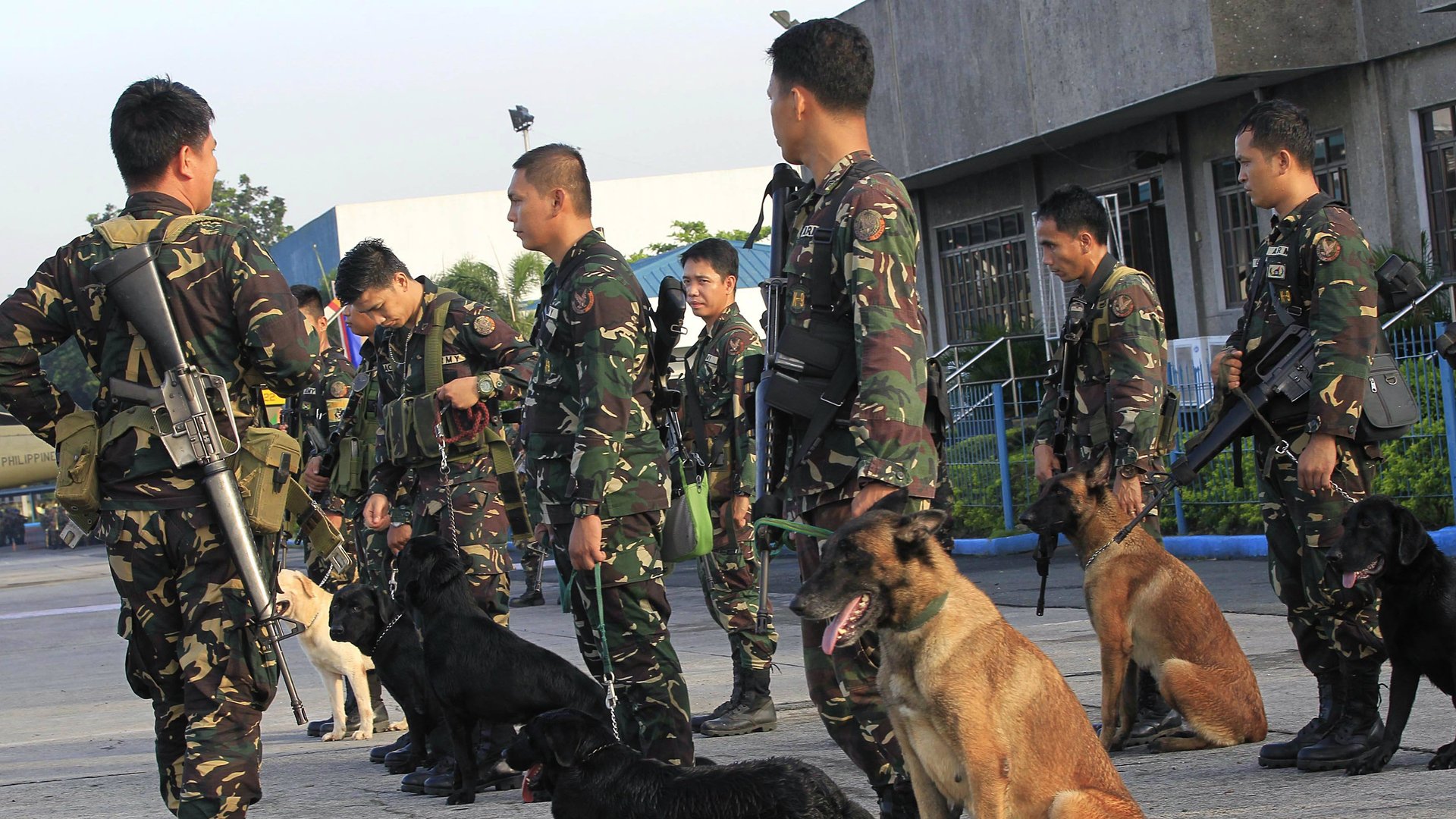A Canadian tourist was beheaded by Islamic terrorists in the Philippines
A little-known but very dangerous Islamic militant organization has carried out a frightening threat.


A little-known but very dangerous Islamic militant organization has carried out a frightening threat.
Canadian prime minister Justin Trudeau confirmed that a decapitated head discovered by Filipino police on Monday (April 25) belongs to Calgary resident John Ridsdel.
The “act of cold-blooded murder and responsibility rests squarely with the terrorist group who took him hostage,” Trudeau said in a statement. “The Government of Canada is committed to working with the Government of Philippines and international partners to pursue those responsible for this heinous act and bring them to justice.”
Ridsdel, 68, was one of three foreign nationals kidnapped by the Filipino terrorist group Abu Sayyaf last September, AP reports.
Ridsdel’s head was found in on the side of the road Jolo City, where the group is based. He was originally captured on September 21 when militants raided the Holiday Ocean View Marina resort in the island of Samal, about 500 kilometers from Jolo. In an armed takeover, the militants seized Ridsdel, fellow Canadian Robert Hall, Norwegian Kjartan Sekkingstad (the resort’s manager), and his Filipino girlfriend, Marites Flor.
Ridsdel was a semi-retired executive at Canadian Mining firm TVI Pacific. Last week he and Hall appeared in an online video pleading for their lives, in front of a group of armed and masked men. Members of Abu Sayyaf demanded a ransom of 300 million pesos (about $6.4 million) per captive by 3PM local time on April 25, or else the two men would be beheaded. The Filipino government assigned joint military and police task force to intervene, but its efforts were not successful.
Both Canada and the Philippines follow a no-ransom policy when dealing with international abductions, and the Filipino government asked that Canada not comply with Abu Sayyaf’s demands.
Abu Sayyaf has existed since the early nineties as a separatist organization fighting for an independent, Islamic state for the Philippine’s Muslim residents. It is a small organization, with membership estimated to be between 200 and 400 people. But it has regularly kidnapped foreign nationals and earned money through extortion in recent years.
In April 2014 the group kidnapped two elderly Germans and demanded a payment of $5.6 million in exchange for their release. The hostages later returned home in October. Abu Sayyaf said that the ransom was paid—Filipino authorities did not respond to the claims, while German authorities said no state money was paid.
Later that year, the group beheaded Malaysian national Bernard Then. Reports suggest he was executed despite the Malaysian government’s payment of a portion of the suggested ransom. The group doesn’t target foreigners exclusively, however, or even non-Muslims. In 2014 it killed 23 Filipino nationals who were traveling to visit relatives for the end of Ramadan.
In January 2016, the group pledged allegiance to ISIS, though it’s unclear if the organizations have ever cooperated.